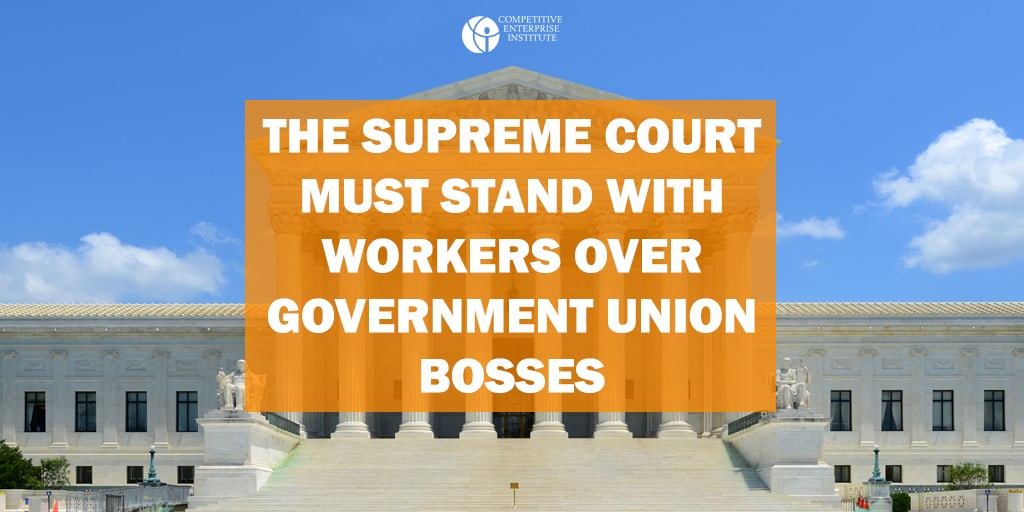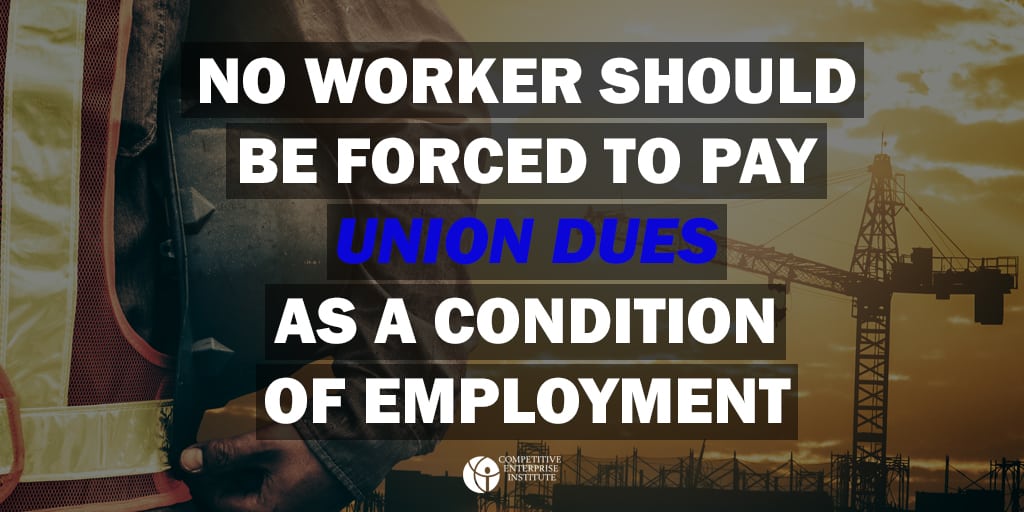This year, the U.S. Supreme Court will rule on the issue of whether state and local government employees can be forced to pay union dues in exchange for a job. The case is Janus v. AFSCME Council 31, and the outcome will have a huge impact on public workers’ rights to free speech and association.
The Competitive Enterprise Institute has weighed in to support an Illinois child support specialist, Mark Janus, who argues his First Amendment rights are violated by the state law forcing him, as a condition of employment, to pay dues to a union that does not represent his values and interests. For more information about this case, please visit standwithworkers.org.
1. What’s at stake in the Janus case?
The First amendment rights of millions of state and local employees are at stake. Currently, public-sector employees are forced to pay fees to a union as a condition of employment. A victory in the Janus case means public employees can serve their communities without having to finance inherently political government unions they disagree with and likely never voted to have represent them.

2. Who will be affected by the Janus ruling?
In 22 states, around 5 million state and local employees are compelled to pay union fees or risk losing their job. This landmark case could finally end the injustice of current law compelling individuals to fund an organization with which they disagree. An added benefit would be that government unions will no longer be able to take workers for granted, and unions would be more accountable to workers. They will have to offer valuable services to public employees to attract dues paying members.

3. Why is CEI supporting Mark Janus in this case?
No worker should be forced to financially support a union to speak and bargain on their behalf with the government. All hard-working men and women should be able to determine how to spend their earnings, not forced to pay a union they may not want to join.

CEI Resources:
- Amicus Brief: Brief of Amicus Curiae in Janus v American Federation of State, County, and Municipal Employees
- Report: Supreme Court Can Strike a Victory for Worker Freedom in Janus Case
- Op-Ed: Dear Supreme Court, It’s Time to Let Union Workers Decide How to Spend Their Money
- Blog: Forced Union Dues Fund Labor Union Politics
- Blog: Stop Forcing Unions on Workers